It’s no secret that highly perishable products can become a health hazard when they’re not handled properly.
In this article, I’ll show you how long eggs can be kept unrefrigerated, so you don’t need to make any unnecessary trips to the ER.
Eggs in the US have a really short shelf life especially when they’re left at room temperature because they lack protection against harmful bacteria.
This however doesn’t apply to farm bought eggs or ones collected from free range chickens.
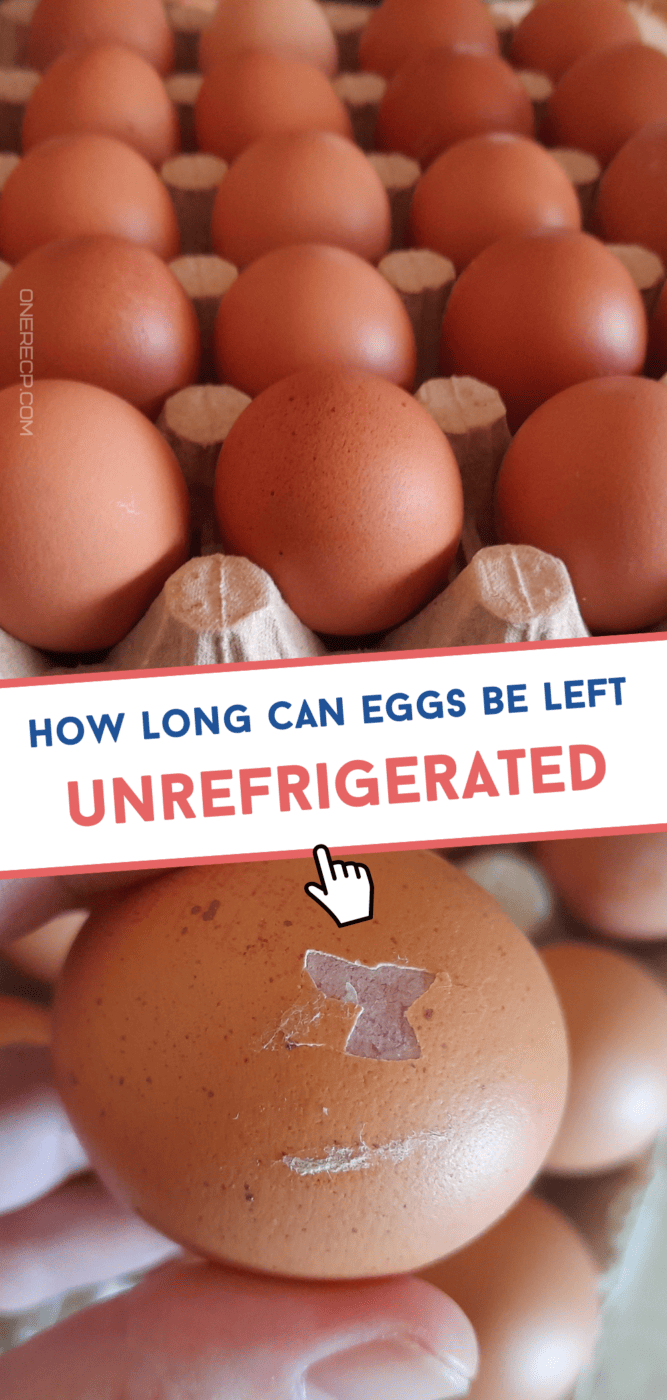
How long can eggs sit out before they go bad?
All store-bought eggs in the US are washed in order to destroy harmful microorganisms such as the Salmonella bacterium.
Even though this practice is quite useful when the eggs are freshly laid, it ironically makes them more susceptible to subsequent contamination.
This is because washing destroys the protective layer of the egg shell which keeps bacteria and fungi at bay.
As a result, eggs should never be left out of the refrigerator for more than 2 hours when the ambient temperature is less than 90°F or for more than one hour if it’s higher. This temperature range is known as the “danger zone” since it allows disease-causing bacteria to multiply at rapid rates.
This is also the very same reason why the “Warm” setting on slow cookers should never be used to preheat food. It’s worth noting, that this rule only applies to store-bought eggs that have been thoroughly sanitized beforehand.
Unwashed eggs can be kept at room temperature between two weeks and a month after being laid.
In fact, you can buy fresh eggs straight from the counter in many European countries since egg washing isn’t a mandatory practice in the EU. European regulators try to minimize the risk of salmonella poisoning through other precautionary measures such as using antibiotics.
Furthermore, washed eggs are at an increased risk of contamination when the weather is warm or there’s a big temperature swing.
Let’s say you take a dozen eggs out of your fridge and let them sit for a few hours on your kitchen counter.
Once out, the sudden temperature shift will make them sweat, which in turn will create an ideal breeding environment for bacteria.
Meanwhile, the moisture from the condensation will facilitate the movement of the bacteria towards the inside of the egg. Due to this, eggs that have been taken out of the fridge once shouldn’t be put back.
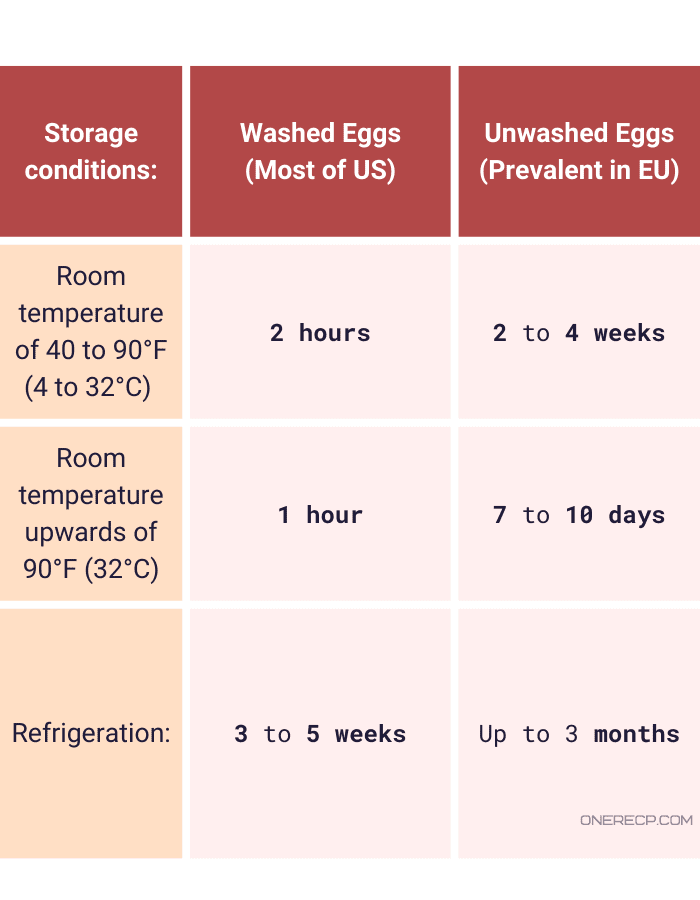
Can eggs go bad in the fridge?
While refrigerating eggs keeps them safe from contamination, it doesn’t stop present bacteria from growing. This is because some bacteria can survive in extremely cold environments.
So even when washed eggs get refrigerated, they can still be exposed to small amounts of bacteria.
If you’ve ever left a piece of food in your fridge for way longer than you should’ve, then you’ve probably noticed it eventually got covered in mold. Well, it’s the same with bacteria, you just can’t see it.
Anyways, here are a few ways to tell if refrigerated eggs are safe to eat:
- Check the Sell-By or Expiration Date. If the sell-by or Expiration dates haven’t passed, the eggs should be safe to consume.
Note that some cartons come with a “best by” date, which points to the last day at which eggs are the freshest.
The eggs can be consumed after this date has expired, but they’ll probably have poorer quality and texture.
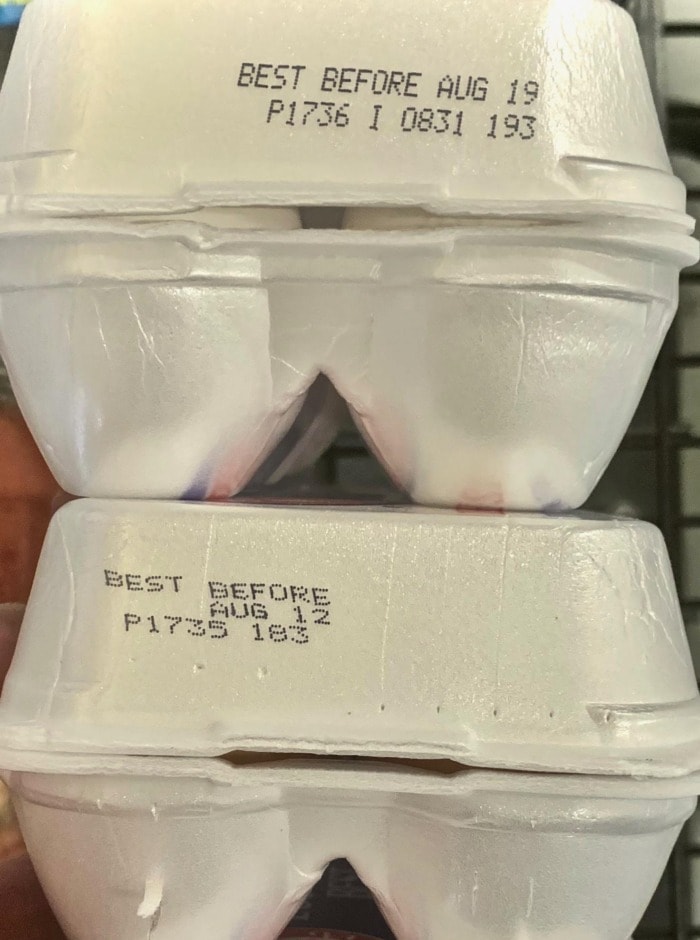
by BostonBestEats
- Perform a visual inspection. Check to see if the egg shell is cracked, powdery or slimy.
A cracked or slimy shell might indicate bacterial contamination, whereas a powdery shell is usually a sign of mold.
Once you’ve inspected the shell, crack the egg on a white plate and check for any signs of discoloration.
A healthy egg should have a translucent egg white, without any black or green spots.
If you notice any abnormalities in the egg, you should throw it out.
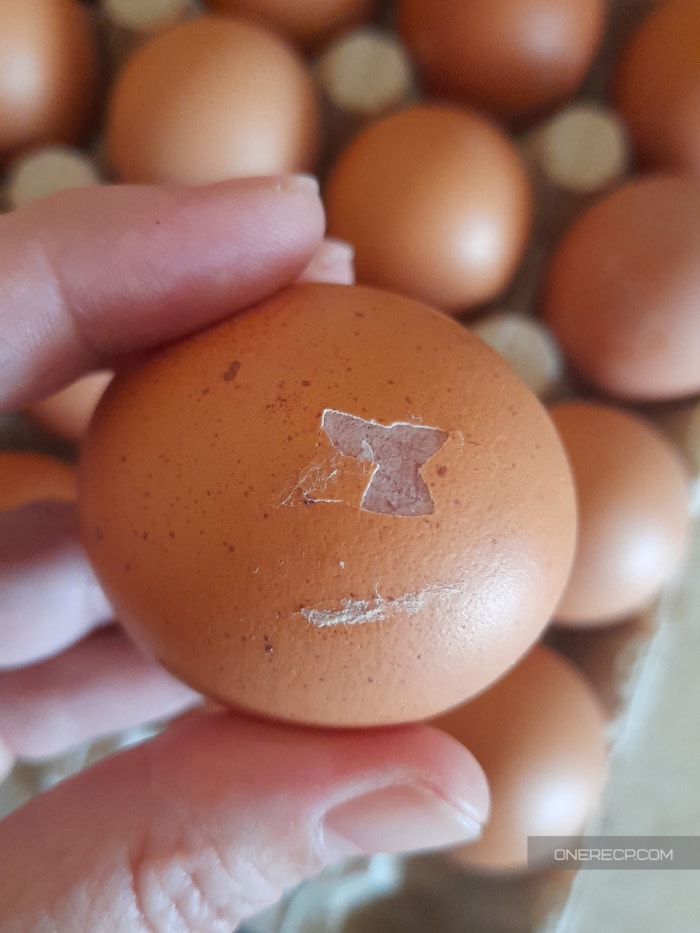
- Check for any strange smells. Break the egg open and give it a sniff.
Rotten eggs give off an unmistakable sulphuric odor.
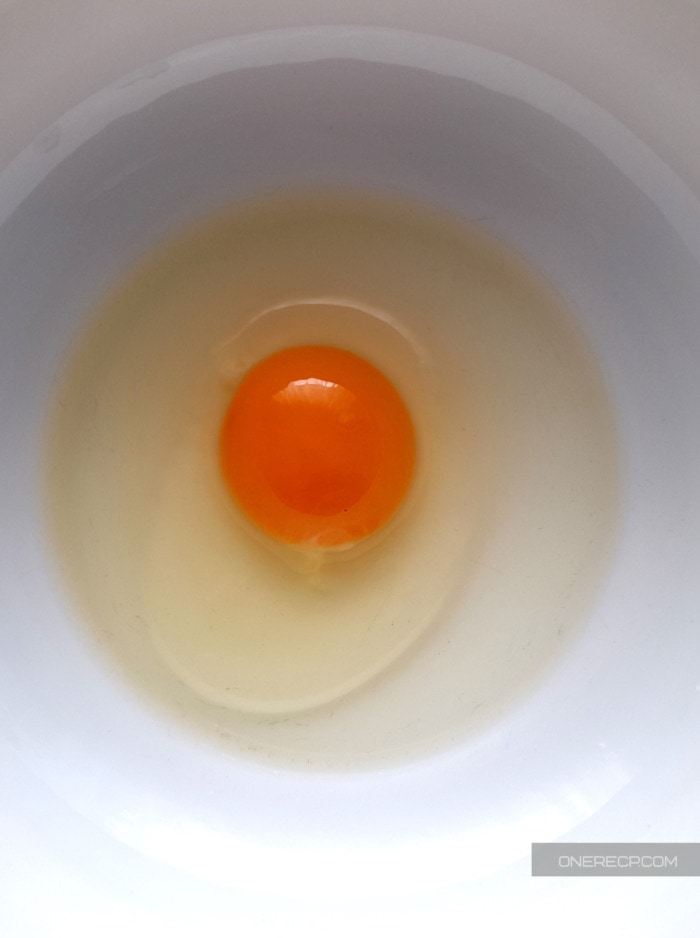
Note about the “egg float test”. Essentially, you may have heard that if raw eggs float in water they are bad and should be thrown away. This is not entirely true. Eggs that float are simply old but not necessarily inedible. Visit the link to learn more about the mechanisms behind this. Also, some hard boiled eggs will float for different reasons.
Anyhow, since performing all of these tests every time you’re about to make an omelet can be a bit of a stretch, you might want to increase the shelf life of your eggs instead.
However, it’s still a wise idea to check if your eggs are done when you boil them.
More Chicken Product Storage Tips: How Many Days Will Raw Chicken Last in the Fridge or Freezer?
My way to make washed eggs last twice as long
Under normal circumstances, a batch of fresh refrigerated eggs would last somewhere between 3 to 5 five weeks before it expires.
However, if you coat the eggs in mineral oil, you’ll increase their shelf life by an additional five weeks without any substantial loss in quality. Mineral oil creates a protective barrier which slows down gas exchange.
This helps the egg preserve its moisture and texture for a significantly longer period of time, while also keeping bacteria at bay.
The best thing about this method is that it protects the eggs from bacterial contamination, so you won’t have to worry if you accidentally leave them out of the fridge overnight. In fact, eggs coated in mineral oil can last for more than 24 hours without refrigeration.
If you want to preserve your eggs with mineral oil, you’ll need to follow these steps:
- Get a bottle of mineral oil and a pair of rubber gloves.
- Warm 1/8 cup mineral oil in the microwave for 15 – 20 seconds.
- Make sure the eggs and carton are dry.
- Put on your gloves and rub a little mineral oil on.
- Grab an egg and coat it with mineral oil.
- Place the egg back in the carton with its small end down.
- Flip eggs every week.
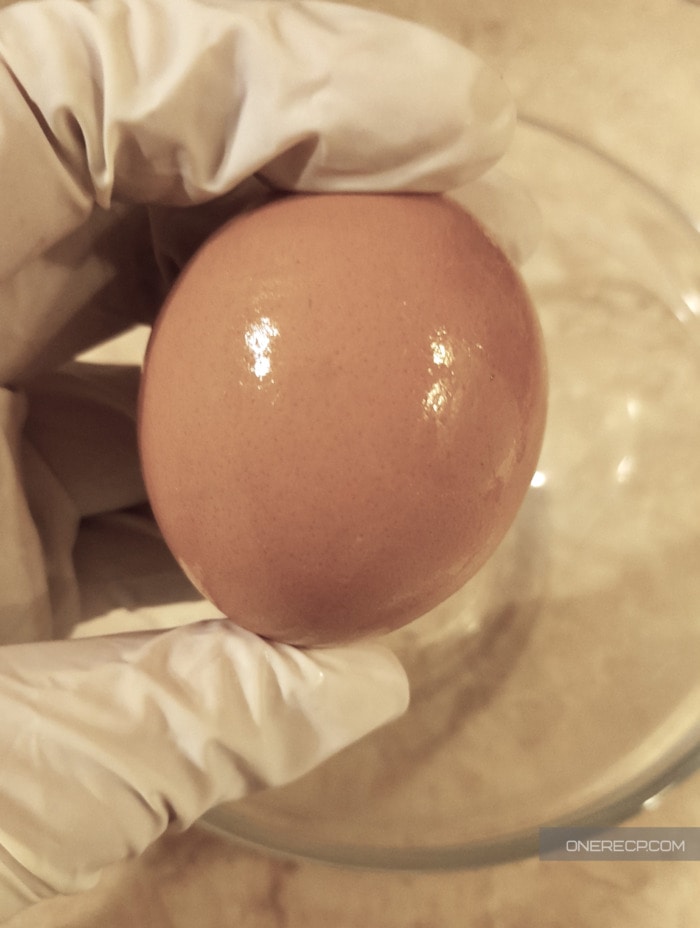
Once you’re ready to cook the eggs, simply wash off the mineral oil coating.
Interestingly enough, there are some claims that this approach can preserve eggs for as long as one year.
However, I wouldn’t advise you to go that far since these claims aren’t scientifically proven yet.
And besides, why would you even want to hold on to a batch of eggs for an entire year when you can buy a fresh one from the grocery store?
Check out next: Tips for Storing Peeled Hard Boiled Eggs in the Fridge
My Recap
Eggs are a great source of fats, proteins and minerals which makes them a staple food in many diets.
Since they’re highly perishable, it’s important to always keep them refrigerated and take them out right before you’re going to use them.
Eggs Recipe You Can Try: Baked Eggs in the Clouds